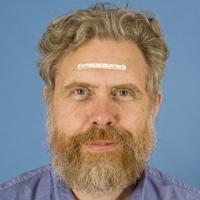
2011 Bower Science Award Theme: Genomics
If the 20th Century was the golden age of physics, with the development of quantum mechanics, nuclear power, and electronic communications, then the 21st promises to be the century of biology, in which remarkable insights into the fundamental mechanics of life give us increasing abilities to heal disease and enhance humankind. Key to that promise is precise and accurate knowledge of the genetic machinery that controls life at its most basic molecular level. For his entire career, George M. Church has been leading the way in finding new ways to acquire and use that vital knowledge.
As the founder of the Personal Genome Project, Church is pioneering what promises to be a new era of individualized medicine, in which drug treatments and other therapies can be optimized by custom-matching them with a person's unique genetic makeup. If such truly "personalized medicine" ever becomes a reality, it will owe a large debt to the basic research techniques Church has developed for faster, cheaper, and more efficient DNA sequencing and analysis, beginning with his seminal invention of multiplex sequencing.
Church's passion for science and discovery dates back to his childhood, when he built his own computer and taught himself programming. He was also fascinated by biology and studied insects and other animals; he considers one of his earliest thrills to be witnessing the transformation of a water bug into a dragonfly. Later, as an undergraduate at Duke University, Church began thinking about integrating the techniques of computer science and biology. While a graduate student at Harvard, he developed the idea of multiplex sequencing, which allows the simultaneous analysis of many individual strands of DNA in a single procedure instead of the painstakingly slower and tedious techniques which dominated the field. The possibilities raised by Church's new methods later inspired the Human Genome Project (although the leaders of that effort chose to use more established sequencing technology).
Church expanded upon his multiplexing concepts, which were eventually used to accomplish the first sequencing of a microbial genome, Helicobacter pylori, in 1994. He continued to develop other useful techniques to isolate and amplify single DNA molecules for convenient study by common microscopy methods. His work has helped to make sophisticated molecular biology techniques available even to small, modestly funded labs and institutions.
Another rapidly blossoming field thanks to Church's work is synthetic biology, involving the engineering and study of biological systems not found in nature. The genetic technologies Church has invented and championed provide the basic tools of DNA manipulation that give this exciting new field such vast potential. He holds a variety of patents for his developments, and works as a consultant or advisor to numerous companies and businesses involved in the commercial applications of genomics.
A core principle of Church's scientific philosophy is openness and free access to scientific information. That inspired him to create the Personal Genome Project, a comprehensive database of genetic information on at least 10,000 individuals, cross-indexed with medical data. Church hopes that this vast treasure trove of data will lead to the discovery of vital correlations between genomic and phenotypic information, providing new and valuable insights into the origins and workings of various diseases.
The very first genome to be placed in the PGP was that of Church himself—a characteristic and concrete example of personal courage and professional dedication for a scientist who has always specialized in blazing new trails for others to follow.
Information as of April 2011

